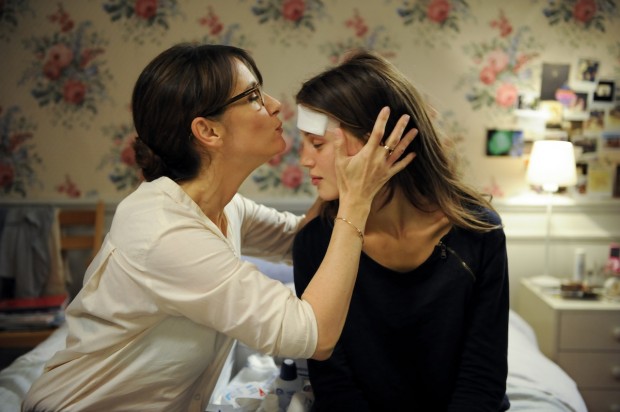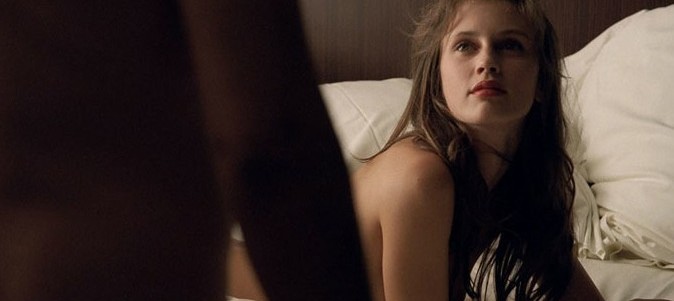Jeune & Jolie (Young & Beautiful) paints the portrait of a young French girl’s journey of sexual awakening and experimentation that is at times reminiscent of a teenage version of Luis Bunuel‘s Belle du Jour. Often melancholic but interspersed with some unexpectedly funny candid moments, French director Francois Ozon presents an unjudgmental voyeuristic peek into the life of an underage prostitute.
After a summer fling with a German boy, 17-year-old Isabella (Marine Vacth) takes on the part-time job of a prostitute. Adopting the pseudonym of Lea on an online call girl service, she charges up to 500 euros for sex. Through her trysts, some awkward and some plain insulting, she meets Georges (Johan Leyson), an elderly man with whom she forms a tender connection that transcends the transactional nature of their sexual bartering. The film traces her journey through four seasons, set to four Francoise Hardy songs, as she hides her double life from her family.

In one classroom scene, a group of Isabella’s classmates offer their readings of the Arthur Rimbaud poem No One’s Serious At Seventeen. A striking parallel is drawn between the lonely voyage of Robinson Crusoe and the path taken by a wandering lover. Most of the heavy lifting is done by Vacth; never does her Isabella come across as undignified. She emotes pain, vulnerability and steeliness behind her enigmatic gaze even in the most humiliating of her client’s kinky requests.
The emerging actress is also supported by solid performances from the rest of the cast. There is a sweetness in the relationship shared between Isabella and her younger brother Victor (Fantin Ravat). Although the two share an implicit understanding of each other’s sexual encounters, which may come across as bizarre and unsettling at times, beneath that lies a more relatable protective sibling relationship. A tantalising erotic scene at the end of the film with Charlotte Rampling is a tease.

Despite a fairly cogent and structured story, there remain a few striking plot holes about the motivations of certain central characters. It is never made clear what Isabella needs so much money for – is it an issue of self-empowerment? The complexities of her relationship with her mother (Géraldine Pailhas), who is suggested to have some shady secrets of her own, is also woefully left unexplored.
The film is also plagued by some pacing issues where it sags in the middle, but on the whole, Ozon succeeds in crafting an unmistakably French tale of sexual maturation and deviancy. Where it flounders in pacing, it triumphs in robust performances all around.

